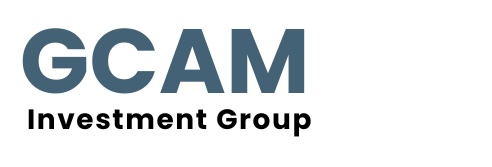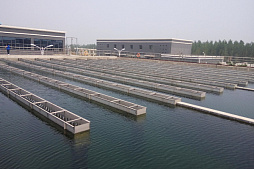After receiving the necessary documents and project presentation, our team will try to review your request as soon as possible, and leading experts will offer the best options for project funding.
Overall, private sector loans in Germany reached an impressive €1.7 trillion in the fourth quarter of 2021, which is understandable when it comes to the EU's largest economy.
GCAM Investment Group, a European company with rich international experience in financing business projects, is ready to offer you a full range of services in EU countries.
We issue investment loans in Germany for large projects in the field of energy, transport, industry, environmental protection, mining, real estate, agriculture and others.
Our experienced financial team also provides comprehensive support to clients at all stages of project implementation, including financial modeling, project finance, guarantees, engineering services, etc.
Loans for large businesses in Germany
The German banking system is considered one of the most stable in the world. It includes more than 1.8 thousand financial institutions, including more than 400 state-owned banks.The unofficial ranking of the largest banks in Europe includes 7 financial institutions in Germany, while Deutsche Bank (founded in 1870) occupies a well-deserved place in the top 10 largest banks in the EU.
Other major financial institutions that issue loans for large businesses in Germany include Commerzbank, KFW Bankgruppe, HypoVereinsbank, Landesbank Baden-Württemberg, Bayerische Landesbank, Landesbank Hessen-Thüringen, Norddeutsche Landesbank and many others. This is a strong foundation for the German economy, allowing tens of thousands of business projects of various sizes to be financed annually.
Investment loans in Germany refer to long-term loans with a maturity of more than 5 years, which are used by businesses to purchase and create high-value assets, including the construction of power plants and factories, the replacement and modernization of equipment, etc.
German banks offer relatively low interest rates and flexible terms for investment loans, not least due to a stable banking system and a strong economy.
The country also has an active market for medium-term and short-term loans, which companies use to support current operations and purchase fuel, consumables, etc.
These working capital loans usually repay after a few months or a few years.

German banks offer very different terms and financial services, making a clear distinction between a corporate loan for larger companies such as a limited company, Gesellschaft mit beschränkter Haftung (GmbH) or Europäische Gesellschaft (SE) and a loan for the self-employed.
Corporate loan interest rates start at less than 1% but can reach double digits for small companies and risky projects. The reason for such a high range lies in the very different requirements for each borrower.
Table: Interest rates on long-term loans in Germany and some other countries (2022).
| Country | Interest rate | Country | Interest rate |
| Germany | 1,5% | Australia | 3,8% |
| Austria | 2,1% | Canada | 3,2% |
| Belgium | 2,1% | China | 2,8% |
| Denmark | 1,8% | Great Britain | 2,3% |
| Italy | 3,6% | Israel | 0,5% |
| Finland | 2,0% | Japan | 0,2% |
| France | 2,1% | Singapore | 3,0% |
| Greece | 3,9% | South Africa | 11,2% |
| Portugal | 2,6% | South Korea | 3,6% |
| Poland | 7,1% | Thailand | 2,9% |
| Spain | 2,6% | Turkey | 19,0% |
Banking legislation in Germany is complex and contains a number of strict restrictions regarding the lending of projects in the context of the safety and solvency of borrowers.
In particular, the issuance of loans is regulated by the German Banking Act, or Kreditwesengesetz (KWG). Local legislation requires strict monitoring of risky loan agreements, especially when it comes to loans in excess of 1 million euros.
The Deutsche Bundesbank monitors compliance with large risk limits as well as risk allocation for large loans of each financial institution. Experts of the Bundesbank, among other things, collect and analyze information on the amounts of investment loans issued and the sectoral concentration of risks associated with business loans.
This data is vital not only for each participant in the credit market, but also for the entire German financial system, which must remain stable and reliable.
Financing start-ups in Germany
Startups in Germany are one of the leading drivers of innovation and one of the most attractive investments in terms of potential returns.However, these are quite risky projects that require a cautious approach and a comprehensive assessment before making financial decisions.
Every year, more than 70,000 start-ups are created in Germany, which attract over 8 billion euros of funding from various sources, including investment loans from German banks.

Important conditions for the survival and prosperity of young companies and innovative projects in the highly competitive German economy are affordable financing, a valuable business idea and the talent of the management team.
According to statistics, only 10-20% of startups in developed countries exist for more than 2 years.
And only a few of these companies in the future will achieve impressive commercial results comparable to Otto Bock, CureVac or AUTO1 Group.
Long-term support for start-ups depends largely on government entrepreneurship policies, effective state and local governments, and high-tech SME financing programs. This support can come in many forms, including soft loans, tax breaks, insurance benefits, preferential freight rates, and more. Germany is considered a favorable country for start-ups, which pursues a long-term and targeted policy of supporting innovative projects at all levels.
This is especially noticeable in such sectors as medicine (oncology, cardiology, prosthetics), biotechnology, automotive industry, green energy (for example, wind power generation), power transmission and others.
Startup financing in Germany is mainly carried out through lending or attracting investors in various formats. Loans look the most attractive from the point of view of start-ups, since this form of financing completely retains control over the business for its initiators.
However, issuing long-term loans for high-risk projects in Germany is difficult, as banks use caution with young companies without sufficient assets and operating history.
However, local banks can accept an application from a startup by sending it to the Kreditanstalt für Wiederaufbau (KfW) for consideration.
KfW is a large state-owned bank with assets exceeding 500 billion euros, owned by the German government and the federal states of Germany. This is one of the most reliable financial institutions in the country, which also performs the function of supporting entrepreneurship and financing business projects in strategic areas.
In Germany, there are a number of programs that allow start-ups to get a loan for business development in various amounts, up to 25 million euros. This is serious support, which would be impossible without government intervention and control.
The essence of this support is that KfW can provide a local bank with guarantees covering up to 90-100% of a loan.
Of course, the final terms of the loan agreement directly depend on the risk of a particular project and its scale.




























